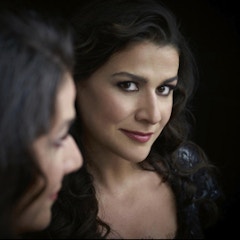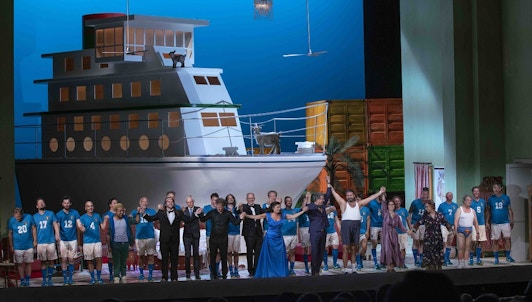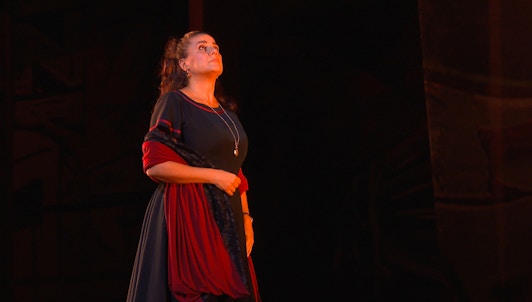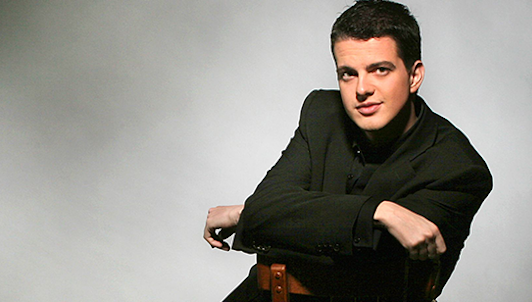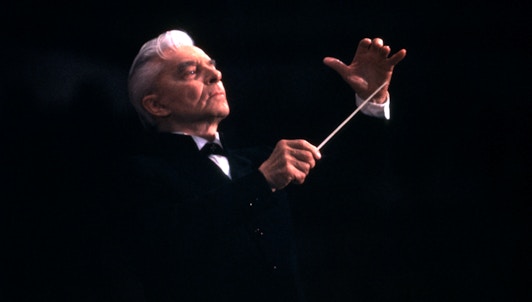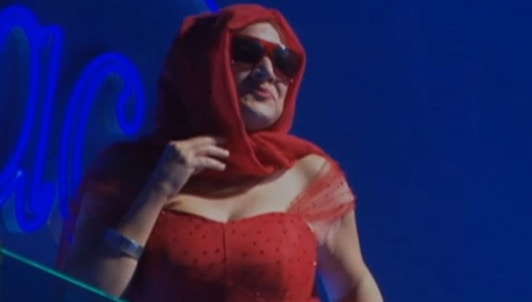For more than two decades, Cecilia Bartoli has undeniably been one of the leading artists in the field of classical music. All over the world, her new operatic roles, her concert programs and recording projects – in exclusivity with Decca – are expected with great eagerness and curiosity. 8 million CDs sold, more than 100 weeks ranking in the international pop charts, numerous Golden Discs, four Grammys (USA), nine Echos and a Bambi (Germany), two Classical Brit Awards (UK), the Victoires de la musique (France) and many other prestigious awards reflect the immense success of her solo albums, such as Opera proibita and the discs dedicated to Vivaldi, Gluck and Salieri which made her one of the “best-selling classical artist” of nowadays.
Thus, Cecilia Bartoli brings classical music close to the hearts of millions of people throughout the world. Apart from that, she is proud that through their popularity, her projects have caused a wide-spread re-evaluation and rediscovery of the neglected composers and forgotten repertoire which she puts up for discussion.
It is not surprising that Herbert von Karajan, Daniel Barenboim and Nikolaus Harnoncourt were among the first conductors Cecilia Bartoli worked with. They noticed her talent at a very early stage when she had barely completed her vocal studies with her parents in Rome, her home town.
Since then, many further conductors, pianists and orchestras of highest renown have been her regular partners. In recent years, her work has begun to focus on collaborations with the most significant period instrument orchestras (Akademie für Alte Musik, Les Arts Florissants, Concentus Musicus Wien, Freiburger Barockorchester, Il Giardino Armonico, Kammerorchester Basel, Les Musiciens du Louvre, Orchestra of the Age of Enlightenment, Orchestra La Scintilla). Projects with orchestras where Cecilia Bartoli assumes the overall artistic responsibility have become increasingly important to her and were crowned by the jointly developed and performed programmes with the Vienna Philharmonic Orchestra.
Cecilia Bartoli sings in the most important concert halls in Europe, in the United States and in Japan. Her stage appearances include prestigious opera houses and festivals such as the Metropolitan Opera in New York, the Royal Opera House Covent Garden in London, La Scala in Milan, the Bavarian State Opera in Munich, the Salzburg Festival and the Zürich Opera House, where she has presented many of her operatic roles for the first time.
In September 2010 she returns to the Theater an der Wien for Handel’s Semele (with William Christie) – a Robert Carsen production which has been successfully released on DVD – and in January 2011 to Zurich for a new production of Le comte Ory.
Recently, Cecilia Bartoli has enrich her repertoire with works from the early 19th century – the era of Italian Romanticism and Belcanto – with a particular attention to the legendary singer Maria Malibran, whose 200th birthday on 24 March 2008 was marked by a historical day in Paris, Malibran’s birthplace : Cecilia Bartoli sang three concerts with Lang Lang, Vadim Repin, Adam Fischer and Myung-Whun Chung – while the City of Paris showed her Barcelona Concert on a big screen outside the Hôtel de Ville, where Cecilia Bartoli’s mobile Malibran Museum was stationed to honour that special day.
Further events of Malinren’s bicentenary were the CD Maria, the DVD The Barcelona Concert/Malibran Rediscovered, extensive concert tours as well as operatic appearances in Cenerentola, La Sonnambula and Halévy’s Clari – in a Malibran opera which had not been performed since 1829. The first complete recording of La Sonnambula with period instruments and Juan Diego Flórez as Elvino rounded off this great homage to Malibran. The Romantic Revolution was sensationally carried further at the Konzerthaus Dortmund in June 2010 with a historically informed rendering of Norma. Cecilia Bartoli, in the title-role, was joined by Thomas Hengelbrock, who conducted the Balthasar-Neumann-Ensemble on period instruments, and by a cast that reflected the original vocality of Bellini’s own time.
Most of 2009-2010, however, was dedicated to a breathtaking voyage towards 18th century Naples and its castrato stars. Apart from the release of the record-breaking solo album, Sacrificium, concerts with a so far unknown castrato repertoire took place in all major European capitals. Further highlights were the concert performances of Handel’s Giulio Cesare conducted by William Christie at the Salle Pleyel (Paris) with Andreas Scholl and Philippe Jaroussky.
Cecilia Bartoli has been endowed with the Italian Knighthood and has received the title of “Accademico effettivo” of Santa Cecilia in Rome. In France, she has been nominated “Chevalier des Arts et des Lettres” and “Officier de l’Ordre du Mérite”. She is also an “Honorary Member of the Royal Academy of Music in London”. Most recently, she was given the prestigious Italian prize “Bellini d’Oro”, a “Medalla de Oro al Mérito en las Bellas Artes”, one of the highest awards of the Spanish Ministry of Culture, and the “Médaille Grand Vermeil de la Ville de Paris”.
On the occasion of the Handel Jubilee Year 2009, Cecilia Bartoli was made Honorary Member of the advisory board of the Handel House Halle Foundation, and in the subsequent year she received the Halle Handel Prize. Also in 2010, in Copenhagen, she was awarded the renowned Danish “Léonie Sonning Music Prize”, in presence of Her Majesty Queen Margrethe II. To round off this eventful year, the venerable University College of Dublin decided to pay homage to Cecilia Bartoli and her work by making her an Honorary Doctor of Music.
